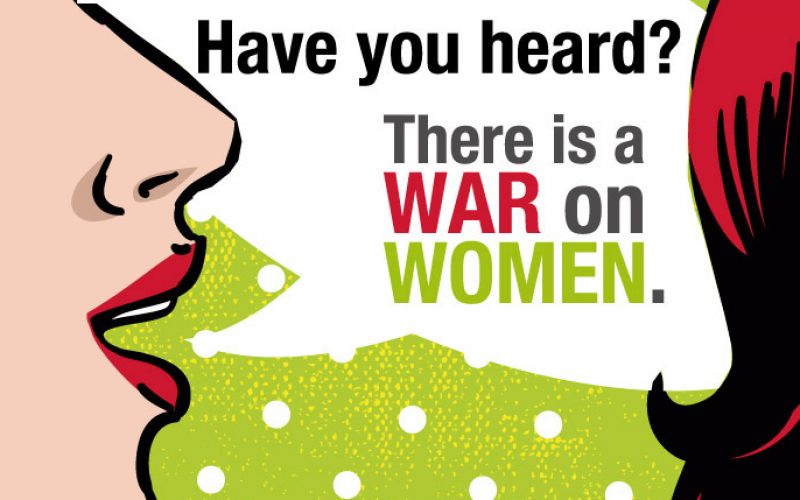Kelly Hampton-Eubanks said she could no longer stay quiet once she felt like her own government had taken up arms again in the “war on women.” She’s not alone in the nation or throughout history, as the fight for women’s equality and reproductive rights has been a political agenda since the mid-1800s when women first began to fight for the right to vote.
Like her historical counterparts, Eubanks and many others around the country will take to the streets in the We Are Women March taking place locally and around the country on Saturday, April 28.
“It was time to get together … There are a lot of women here who want their voices heard. We’re bringing people together and educating people on the issues,” Eubanks said.
Statistically speaking, 2011 saw an increase in introductions of state provisions that would limit women’s access to reproductive options such as abortion and birth control — about 1,100 provisions, up from 950 introduced in 2010, according to the Guttmacher Institute. States also saw an increase in the number of these provisions enacted — 135 in 36 states, up from 89 in 2010.
All of this, along with more “vulgar” and blatant attacks on women from politicians and public figures, caused Eubanks and others around the nation to begin to fight back. But this isn’t just about reproductive issues.
Activists for this cause also say despite the passing of the Lily Ledbetter Fair Pay Act in 2009, an unacceptable gap in pay and opportunity for women still exists and needs to be addressed. The Department of Labor statistics for 2011 support their concerns by reporting women’s pay in the United States at 82 percent of that of men’s.
In 1963, when the Equal Pay Act was passed into law, women were paid 59 percent of that of their male counterparts. While the gap is closing, current Arkansas Senator Mark Pryor, who voted in favor of the Fair Pay Act, said in a statement that the fight needs to continue.
“It is no secret … that women continue to earn less than men and that more work needs to be done,” he stated.
One important way Eubanks said the upcoming march and politicians can address these issues is by promoting the Equal Rights Amendment, first introduced in 1923. Arkansas is one of 15 states that has yet to ratify the amendment that would affirm that women and men have equal rights under the constitution. This is important Eubanks said, because without constitutional protection, the door is left open for inequality.
There are those who don’t see the inequalities, like male friends and acquaintances of one volunteer and Fayetteville resident, Farrell Matlock. He said their argument is that their employers are women, so how can there be inequality? But they’re just not seeing the behind-the-scenes statistics, he explained. To Matlock, being a part of the march is about sticking up for his daughter and other women he knows.
“I see all kinds of stuff on the news about trying to shut down Planned Parenthood and taking away women’s rights to contraceptives through their employers health plan. And, honestly, it doesn’t affect me, but it affects people that I care about,” Matlock said.
A main goal of the march is to show the community how important it is to support women through the power of voting. Matlock will be registering marchers to vote, and hopes that once politicians see the amount of support these issues have, they will begin to take notice.
“I think once they see we’ve got this many people involved, this many votes involved, [representatives] are going to say ‘We might be out of a job if we don’t get on board with this,’” Matlock said.
The local march will take place on April 28 in Fayetteville beginning at the Walton Arts Center at 11 a.m. and ending at the Fayetteville Town Center at noon. A lineup of politicians, health experts and current legislators will speak on a variety of topics.
Ultimately, explained university student and volunteer Jodi Nimmo of Fayetteville, this march is meant to help the entire community.
“When you educate and empower women they benefit everybody. They do things that benefit the entire community,” Nimmo said.











